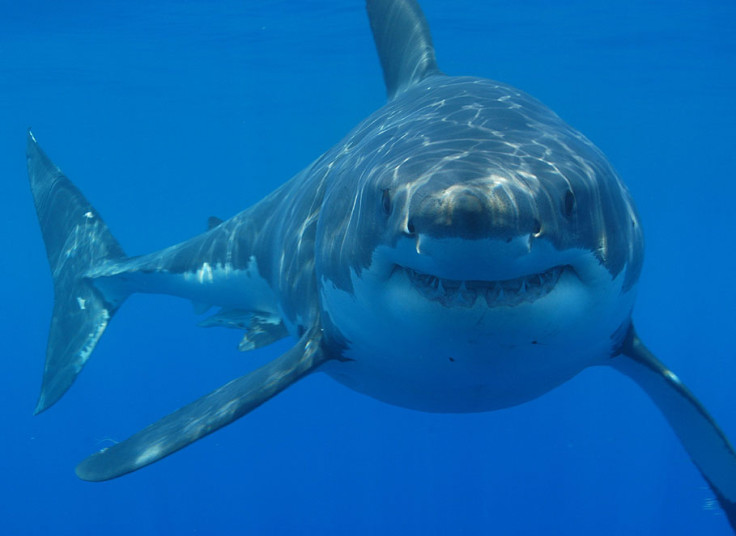Great white sharks use glare of the sun to hunt down prey [Video]

Great white sharks are able to use the sun to more effectively hunt prey – positioning themselves between its glare and their unsuspecting dinner.
The great white shark is one of the most formidable predators of the ocean. They are the largest predatory fish on the planet, growing to about 4.5m long on average – but can reach up to 6m in length.
On top of this, they have 300 sharp triangular teeth across up to seven rows and can swim at over 60km per hour.
Scientists at Flinders University in Australia were looking to show that sharks can adapt their hunting behaviour to use the sun following a number of reports saying sharks had been observed approaching prey based on the position of the sun.
In their study, published in The American Naturalist, the team threw chunks of tuna off the coast of South Australia and monitored how the sharks approached when attacking. They documented 44 great whites making about 1,000 approaches – 37 of which were attacks.

They found the sharks tended to come from the direction of the sun – positioning it directly behind them. When there was cloud cover, there they did not position themselves in this way – suggesting the sun is the driving factor.
"On sunny days, sharks reversed their direction of approach along an east-west axis from morning to afternoon but had uniformly distributed approach directions during overcast conditions," they wrote. "These results show that white sharks have sufficient behavioural flexibility to exploit fluctuating environmental features when predating."
Researchers believe this behaviour could benefit the sharks in a number of ways – the glare could hide them from their prey, improve prey detection or avoid them straining their eyes.
Lead author Charlie Huveneers told IBTimes UK: "Our study provides the first empirical evidence showing that an animal uses the sun to approach a potential prey items. Similarly, other researchers had previously noted similar behaviour in other taxa, but it had never been reliably tested."
He said their findings do not necessarily explain why sharks tend to hunt at dusk and dawn, but could contribute to these specific hunting times: "The preference for approaches with the sun behind white sharks is likely to be more advantages at dawn and dusk when the sun is low on the horizon, with more directional sunlight compared to when the sun is up high with a more homogeneous light. As such, our results contribute to explaining why white sharks might be more likely to predate at dawn or dusk.
"However, keep in mind that there are many other factors to take into account, and our results do not suggest that white sharks are only capable to hunt at dawn or dusk.
"White sharks, like most predators, are behaviourally flexible and will adapt their predatory strategy to the situation to increase their likelihood of being successful."
© Copyright IBTimes 2025. All rights reserved.






















